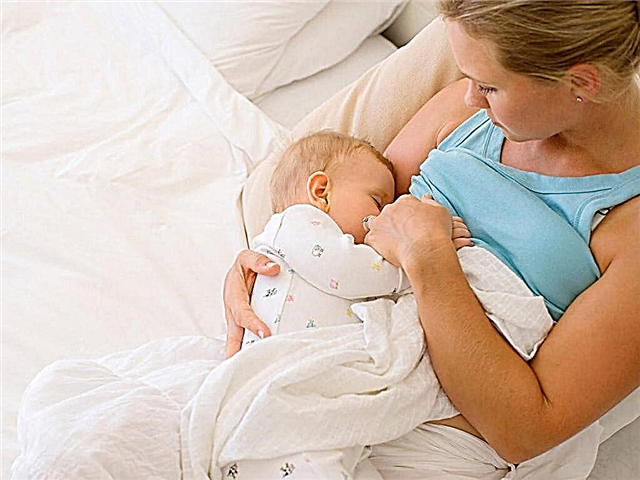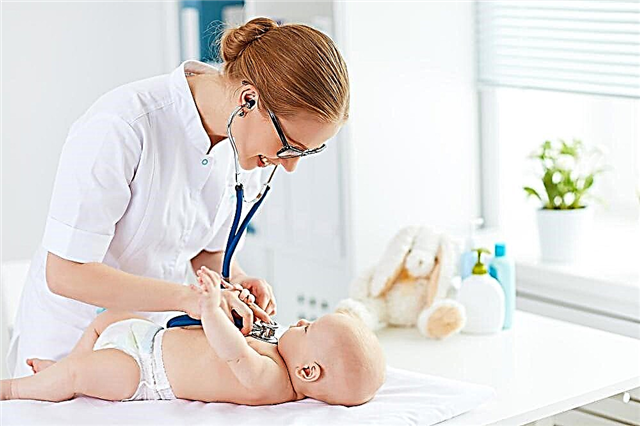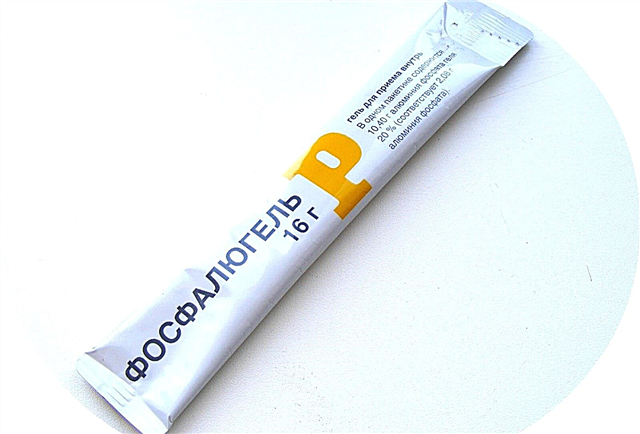Diarrhea in babies during breastfeeding is a fairly common occurrence. The digestive system in a child's body is not yet fully formed. Because of this, her work sometimes fails. Many parents think diarrhea is a temporary misunderstanding and shouldn't be overlooked. This is not a completely correct decision, because certain health problems can be a provocateur of the anxiety state of the child's body. Therefore, it is better for a mother with a baby to consult a doctor, he will be able to determine the exact reasons that provoked this condition and prescribe adequate treatment.

Diarrhea in a one-month-old baby is an alarming symptom that cannot be ignored
Diarrhea in infants with HB
Breastfeeding (Breastfeeding) is a natural and important process for both the baby and the mother. The synthesized milk contains all the necessary bioactive components (enzymes, vitamins, hormones, micro- and macronutrients) and nutrients. Such nutrition helps to strengthen the body's immune resistance, improves the process of adaptation of the child to new conditions of existence. Diarrhea in newborns while breastfeeding is not uncommon. This may be due to individual intolerance to certain components of milk or complementary foods.
Analysis of statistical data showed that in infants who eat mother's milk, stomach upsets are recorded much less often than in babies who grow up on artificial feeding. It has been proven that the provocateurs of loose stools in babies are bait mixtures with which the mother tries to diversify the diet of her baby.
Council. At the first signs of diarrhea in a child, you need to stop taking mixtures that provoked intestinal dysfunction and return to a more adaptive diet.

Breastfeeding enhances the bond between baby and mother
Symptoms of diarrhea in babies
Diagnosing diarrhea in infants is not easy, since signs of diarrhea in an adult are the norm for a baby. You need to understand that even a hungry baby can go to the toilet about 8 times a day. It is also possible after each meal, especially in babies on HB. Differentiation of loose stools from diarrhea is presented in table. below.
Diarrhea in infants can be diagnosed by the following:
- loose stools;
- the child defecates more than 10 times a day;
- intestinal flatulence;
- refusal to eat;
- weight loss;
- the stool has a strong putrid or acidic odor;
- high temperature;
- feces contain mucus, foam, undigested food pieces, blood streaks;
- feces that are not typical green or black;
- colic.
Differences between normal loose stools and diarrhea
| Assessment criterion | Diarrhea | Loose stools |
|---|---|---|
| Consistency | Very runny, sometimes "flakes" | Liquid |
| Smell | Harsh, fetid | Standard baby-specific stool odor |
| Volume | There is a significant increase in feces | Within the normal range for a particular baby |
Normal bowel movements in a newborn
Many young parents are looking for an answer to the question of what kind of stool a baby should normally have. To begin with, it should be noted that in this case, the norm is absolutely conditional, since the body of each person is individual.
In the first days of life, the child's stool should be black, since during this period meconium, the original feces, is released. This substance has a viscous consistency. The baby on the first day can poop about 10 times. The number of bowel movements will depend on the intensity of the feeding. From the second to the fifth day, the baby may not have a chair. Only a slight discharge of meconium accumulated in the intestine is possible. Until all the original feces come out of the intestines, the baby will not have normal stool. These days, the baby does not poop more than 2-3 times a day.
From about the second week of life, the work of the gastrointestinal canal is restored. At first there are irregular bowel movements, but more frequent than in the first days after birth.
With hepatitis B, the nature of the feces is determined by the individual characteristics of the newborn, which begins to adapt to the mother's milk. At this stage, the composition of milk is not formed, lactation is in a state of development, so the baby's feces may still be abnormal.
Children 1-2 months old have frequent bowel movements. They poop at least 7-8 times a day. It is possible to talk about what kind of stool a baby should have when breastfeeding, only knowing the nature of the mother's diet. The correct digestion of food by the child is influenced not only by the physiological, but also by the psychological state of the nursing mother.

You can find out from the doctor about how to understand that a baby has diarrhea for hv.
Note. In lactation, women should strictly monitor their diet, if necessary, switch to dietary food.
When it is urgent to show the child to the doctor
Diarrhea in an infant is a serious anxiety symptom. The following circumstances may serve as a reason for an immediate appeal to a pediatrician:
- frequent vomiting;
- sudden loss of appetite;
- basal body temperature is above 38 ° C;
- diarrhea;
- the presence of blood impurities in the stool;
- sunken fontanelle;
- the appearance of rashes on the skin;
- slowing down weight gain;
- dry lips;
- crying without tears;
- apathy;
- drowsiness.

To prescribe adequate treatment, you must first establish the etiology of diarrhea
Why does infant diarrhea occur?
There are many reasons that provoke the development of diarrhea in infants. Most often, this condition is associated with anatomical and physiological changes in the baby's body. You need to understand that a child's stool under one year old, even taking into account complementary foods, simply cannot be solid, since the main component of his diet is mother's milk. However, diarrhea in three-month-old infants with HB is possible. The main reasons that provoke the development of this condition are presented below.
Mom's non-compliance with the diet and diet
The mother's diet during breastfeeding affects the consistency, color and smell of the baby's feces. During this period, you need to adhere to a strict diet, but at the same time, try to gradually introduce the child to a variety of foods.
It should be noted! Children may experience colic and bloating from certain foods. Beets, dried apricots, cabbage, grapes, cherries, as well as other foods can affect the consistency of the baby's feces. If the baby has yellow loose stools, this may indicate the presence of fresh vegetables and fruits in the mother's diet.
Diarrhea in a newborn can also occur against the background of a change in the nutrition schedule, the composition of the mixture. This may be due to a food intolerance, such as an ingredient present in formula or mother's milk. Low concentration of iron and protein in the mother's diet also causes loose stools in the baby.

Palpation of the baby's abdomen
Mom taking medication
If the mother takes medication, this may affect the child's condition. In most cases, when taking antibiotics, dysbiosis occurs. In the baby's intestines, the ratio between the amount of beneficial and pathogenic microflora is disturbed. This condition can provoke diarrhea in him.
Diarrhea due to enzyme deficiency
The etiology of the appearance of diarrhea may be associated with a deficiency in the intestine of the enzyme lactase. This substance hydrolyzes milk sugar to two monosaccharides - glucose and galactose. Lactase deficiency can be primary, then babies initially gain weight poorly and look painful, or secondary, for example, as a result of an infectious disease.
More often, children are diagnosed not with lactase deficiency, but overfeeding, when the digestive system is simply unable to cope with the incoming amount of breast milk. Such crumbs very quickly gain weight, but at the same time they often cry during feedings (stomach ache) and vilify. The treatment for this is very simple - feed less often.
Intestinal infection (rotavirus)
Rotavirus infection spreads through food, as well as through household contact. Regardless of living conditions and degree of hygiene, rotavirus infects almost all children. With this disease, vomiting, runny nose, cough, and diarrhea may occur.
To prevent diarrhea, you need to adhere to the following recommendations:
- a woman in labor must adhere to an established diet;
- use only high-quality water for cooking;
- systematically clean the room;
- introduce complementary foods into the baby's diet gradually and in small portions;
- strictly observe the recommended frequency and volume of feedings;
- wash toys regularly.
Note. To achieve maximum results, parents should follow all the recommendations of the doctor.
How to treat infantile diarrhea
Standard medical regimens or traditional medicine methods can be used to treat childhood diarrhea.
Drug therapy for diarrhea in a newborn
After examining the baby and making a diagnosis, the pediatrician can prescribe medications from the following pharmaceutical groups:
- sorbents (Enterosgel, Polyphepan, Smecta, Polysorb);
- antidiarrheal (Sulgin, Phtalazol, Enterofuril, Enterol);
- probiotics (Linex, Bifiform, Acipol, Bifidumbacterin);
- antiviral (Viferon);
- antibiotics (selected taking into account the sensitivity of microflora to the drug).
Important! None of these drugs should be given to a newborn baby without consulting a doctor.
Folk remedies
Not only are medications good for treating diarrhea, traditional medicine also has a fairly rich set of recipes for restoring the body's strength. Here are some effective recipes:
- Pomegranate peel. The tool has antimicrobial, antiseptic, astringent and antidiarrheal effect on the child's body. It can be prepared from pre-dried fruit peels. They are crushed and poured with boiling water. After that, they give the baby a warm drink.
- Blueberry fruits. This drug is prepared in the form of an infusion. It helps to stop diarrhea and has an antimicrobial effect on the stomach and intestines. The composition promotes the healing of wounds in the mucous membrane of the digestive tract.
- Burnet medicinal. The rhizome of the plant is used. Raw materials are crushed and decoctions are prepared from it. The medicine helps to reduce the contractility of smooth muscles, including the musculature of the intestines. Due to this, diarrhea is eliminated.
Signs and treatment of dehydration in an infant during diarrhea
You can determine the presence of dehydration in a baby by the following signs:
- weak cry;
- capriciousness;
- the child cries, but there are no tears;
- loose skin;
- sunken eyes;
- dry mucous membranes;
- low pressure;
- pointed nose;
- apathy;
- sunken fontanelle;
- decrease in the amount of urination;
- tachycardia.
If the above described signs are found, you should immediately call an ambulance. Before the arrival of doctors, the child must be given a lot of liquid. If there are rehydration agents (Pedilayt, Naturalay, Hydrovit, Humana Electrolyte, Oralit) they can also be used.
Diarrhea is a fairly serious condition that requires medical attention. Some pediatricians claim that diarrhea in a newborn may indicate a congenital pathology of the digestive system. In this case, you need to do an operation. It is unacceptable to treat such pathologies with folk methods and medicines, only a qualified specialist can identify them.



